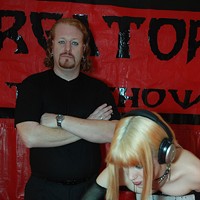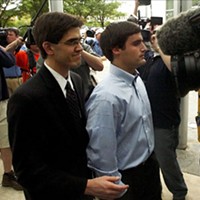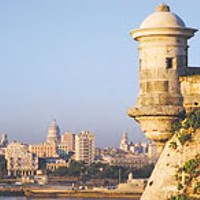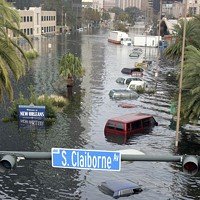Page 2 of 3
The shock of Enron is neither the magnitude of its deceit nor the way the system worked to conceal it, but the bitter recognition that hardly anyone is clean. The president, the vice president, the attorney general, the chairman of the SEC, half of Congress, accountants, law firms, judges, educators, even journalists are wrapped in these oily tentacles. We'll have to look overseas, it seems, to find a special prosecutor with no ties to Enron. It's like the movie Chinatown, where everything is fixed and everyone is in on it. Or Nathaniel Hawthorne's story "Young Goodman Brown," where a whole village of pious Christians worships the devil in secret. Even Paul Krugman of The Times, the harsh Enron critic I quoted above, has admitted that he took $50,000 from an Enron-sponsored "advisory board." ("It had no function that I was aware of," Krugman said in his defense.)
We were, we are, the Enron nation, and before the crash no one seemed to notice that the very blood in our veins had been replaced with petroleum. Investigative reporters, as they still call themselves, were busy trying to make a murderer of Gary Condit. In a culture where the worst scoundrels survive on expensive spin and instant public amnesia, will the unmasking of Enron leave any permanent impression? Does a TV-tranquilized population still experience nausea at the appalling gap between the perception, Enron's surface -- its commercials, its benevolent civic presence, its rosy (and false) quarterly reports, Ken Lay beaming at presidents and celebrities -- and its naked reality: a coven of flesh-eating predators preying ghoulishly on investors and employees alike, amassing obscene fortunes behind a protective shield of explicit and implicit bribes?
Over Enron's twitching corpse, we can expect new laws governing corporate accounting and 401(k) programs, possibly even stricter regulation of stock transactions and energy markets. There may even be a more skeptical attitude toward the mindless Republican jihad called "deregulation." But if this parade of Enron's vast collection of castrated and compromised politicians doesn't create a mandate for immediate, drastic reforms in political campaign funding, there's no discernible hope for democracy in our time.
The grossest shock of all, for me, was doing the math and comprehending that a player the size of Enron purchases the machinery of our democracy out of petty cash. Out of pocket change. Enron executives, who cashed in $1.1 billion in stock while their company was failing, who stood to gain $254 million in tax rebates from the president's economic stimulus bill alone, bought the loyalty of George W. Bush for a measly million -- like a buck for the hat-check girl. They acquired their entire stable of elected officials for $5.8 million in campaign contributions. That shrewd investment was the best one Enron ever made.
If it doesn't make you furious, nothing ever will. This gross difference in scale, between "big money" to a politician and "big money" to a Kenneth Lay, is the reason we have to build a firewall between electoral politics and corporate treasure. It's as if Fort Knox -- symbolically the wealth of this nation, our wealth -- were guarded only by mangy dogs, and you could carry off the gold by tossing them a few scraps of meat. Yet here's a depressing footnote: One reporter's interviews with MBA students at Columbia, in the wake of the Enron disaster, revealed not a trace of righteous indignation. Their main, if not their only concern was Enron's effect on the job market.
It's unlucky that America, wearing its favorite masks of wounded innocence and belligerent patriotism, is not currently in the mood for self-examination. Today many Americans cling to the myth of benevolent, self-regulating "free markets" as ardently as they embrace free speech or trial by jury. Yet all our experience, every page of our history, tells us that capitalists without cops devolve into bullies and thieves, even monsters.
Enron didn't lock its employees in concentration camps without toilets or floorboards, like coal barons once did to foreign mine workers, but it's clear that Enron would have done something along those lines, if it had been profitable and common practice among its peers. Enron management only stole its employees' life savings and replaced them with worthless stock, then fired people who complained about it on Internet message boards.
Speaking of _comm2.html, 1.00000
-
Blue Line Blues?
Dec 5, 2007 -

Escape Artist
Nov 14, 2007 -

Torch
Oct 31, 2007 - More »
Latest in News
More by Hal Crowther
-

Sympathy for the Devils?
Jun 21, 2006 -

Havana, Mi Amor
Feb 22, 2006 -

A Tale of Two Cities
Sep 28, 2005 - More »
-
ART: Short Fictions by Cara Ober, featuring potter Barbara Chadwick-Bland
Sunday, April 12
-
Good Eats
Our critics' guide to recommended restaurants in Charlotte
-
Dancing The Bard
Hamlet one of three NCDT premiers








